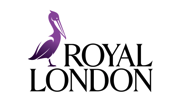
Top Alternatives To A Nest Workplace Pension
In 2012, the government introduced automatic enrolment to help more people save for retirement. Before, employers weren’t required by law to provide a qualifying Workplace Pension. It’s now mandatory for all employers.
As part of the initiative to build stronger saving habits, National Employment Savings Trust (NEST) was set up. A scheme which many companies registered for to fulfil their automatic enrolment responsibilities. Many businesses did this without considering any alternatives.
GOOD TO KNOW 🤓
Our 2022 Workplace Pension Survey found that 58% of UK employees are unsure if they’re saving enough.
Things have changed dramatically since auto-enrolment was introduced. There are more providers and many more options available to help make your Workplace Pension a more valuable benefit. This guide will take you through Nest and the top Workplace Pension alternatives available to you.
What Is Nest?
Nest (National Employment Savings Trust) is a Workplace Pension scheme. It’s a Master Trust that was set up by the government to support auto-enrolment.
Nest ensures that all eligible employees have access to a defined contribution scheme. Any employer can use Nest, no matter their size or industry. Self-employed individuals can also use Nest.
It’s run by the government, but this scheme isn’t the same as the State Pension. The employer and employee make contributions, rather than taxpayers. It is effectively a public body that’s accountable to the Department for Work and Pensions (DWP).
Nest works in the same way as other defined contribution schemes. Both you, the employer, and your employee contribute, and tax relief is provided. The contributions are then invested with the aim of growing that pot of money to support the employee in retirement.
- Employer contributions
Employers have to pay a minimum of 3% by law - Employee contributions
Employees have to contribute a minimum of 5% by law.
Why Do Companies Use Nest?
Although it was initially intended as a fallback, many businesses opt for the Nest Workplace Pension scheme as it’s easy for employers to set up and it was established by the government. This guarantees that an employer is fulfilling their auto enrolment duties.
Nest Workplace Pension schemes:
- Provide security to the employer and employees
- Reduce administrative burden for companies
- Are simple, low cost, and low risk
- Are easy to set up without any ongoing costs.
Is Nest A Good Workplace Pension?
The scheme that works best for your company will depend on what you need from it. Nest is a popular pension option for small and medium-sized businesses.
Many chose Nest for ease of setup and fulfilment of legal obligations. But it might not be an effective scheme for all business types.
Nest might not be the best option for larger businesses, or those paying high salaries or enhanced pension contributions. It’s better matched to businesses whose primary objective is to meet their lawful obligations and those employing seasonal and/or temporary staff with a high turnover rate.
Disadvantages Of Nest
There are several disadvantages to Nest pension schemes, including:
Could Be Subject To Inheritance Tax
Should an employee die before accessing their pension savings, inheritance tax may apply.
If they’ve nominated someone to receive their savings, the pension pot will form part of their estate. As a result, the employee’s assets become liable for inheritance tax.
Expensive Charging Structure
Nest can be an expensive option for those paying in regular contributions. There is an Annual Management Charge of 0.3% but there is also a contribution fee which is set at 1.8%.
Nest is the only pension provider to charge a contribution fee.
An employee contributing £500 a month with a pension worth £50,000 would pay £258 a year. This covers the contribution fee and Annual Management Charge.
This additional contribution charge, when compounded over the many years to retirement, can have a significant impact on the employees’ overall retirement fund value.
Limited Fund Range
Where Nest was introduced as a fallback, the investment range is very limited. Nest has only 7 funds available and very limited options for those wanting Ethical or Sharia Investments.
There are 7 strategy types:
- Default growth
- Higher risk
- Ethical
- Lower growth
- Sharia compliant
- Pre retirement
- Guided retirement.
Does Not Support SMART Salary Sacrifice
Employers who want to support their employees as much as they can when it comes to saving for retirement can ensure employees maximise their contributions and tax relief with SMART Salary Sacrifice contributions.
As it stands, Nest does not support SMART Salary Sacrifice although they do support Simple Salary Sacrifice.
Limited Communication To Promote Scheme
Many of the best Workplace Pension scheme providers offer a whole suite of supporting communication to help you educate your staff on the benefits of saving for retirement.
These communications can include template emails, posters, infographics, videos, and calculators. There is less support from Nest and you will need to undertake a lot of the communication yourself.
Factors To Consider When Looking To Switch From A Nest Workplace Pension
As we mentioned, a Nest pension scheme may be suitable for some businesses, but not all. It’s often the default option and many employers don’t consider the alternatives.
You can switch Workplace Pension providers if your existing scheme isn’t the best fit. At Drewberry™, our employee benefit advisers can help you find the right Workplace Pension scheme.
We can also help set it up and build out your communications strategy. If you’d like extra help with your Workplace Pension, don’t hesitate to get in touch with us by calling 02074425880 or email us at help@drewberry.co.uk.
Here are some factors to consider when switching from a Nest pension to another provider. These can help you find the best fit for your company and employees.
How Much Does The Scheme Cost?
Employee benefits don’t come for free. It costs an employer to offer a Workplace Pension. Being aware of the potential costs is important, as you’ll need to factor them into your budget.
Set Up Fees
How much a pension scheme costs to set up depends on factors, including:
- The pension provider you have chosen
- How much external support you need
- Payroll configuration.
Some pension providers will ask for a one-off fee to cover the setup of your Workplace Pension. This will vary in price depending on the pension provider. For example, one requires a £500 setup fee, plus VAT, which is lowered to £300 if you use a financial adviser.
Not all providers have a setup fee. Some opt for monthly fees or annual charges instead, and others do not charge a fee at all.
Cost of Financial Adviser
Setting up a Workplace Pension scheme can be challenging. Many companies choose to work with an adviser as a result. An adviser can help you set the pension up and ensure it meets the legal obligations. Receiving guidance from an adviser will cost. The price of which depends on the amount of support you need.
Cost of Payroll Configuration
Most payroll software is compatible with auto enrolment. But if it isn’t, configuration may be necessary. It also needs upkeep to ensure employees are enrolled as soon as they become eligible. There are companies you can outsource payroll tasks to for a monthly fee, which may be of use if the admin is too hefty.
Ongoing Costs
It’s important to review your Workplace Pension regularly to make sure it’s still valuable. As an employer, you can do this yourself. But support from an independent financial adviser can ensure you’ve ticked all the boxes.
The cost of external support will depend on:
- The level of support you need
- Your business size
- How long you need support for.
You might face hourly rate charges between £70 and £350. Some do charge a setup fee, though, which can be in the thousands, to cover ongoing support.
Employers may also have to pay fees every month to cover the management and running costs of the scheme. This depends on your chosen provider. For example, Aviva charges between £30 and £50 a month. You’ll get a discount if you’re not using all the provider’s services.
Annual Management Charge
Most Workplace Pension providers charge an Annual Management Charge (AMC).
Nest has a 0.3% AMC on the total value of the pension fund, for example. It also includes a 1.8% contribution charge, which can really start to add up with a highly paid workforce.
By law, the AMC charge cap is 0.75%. You may find that your chosen pension provider has a single cost in the AMC rather than separate costs for scheme set-up and other services.
Which Tax Relief Method Is Best For Your Company?
Income Tax and NI will apply to pension contributions depending on how the scheme is set up. As an employer, you’ll need to consider how the tax works and which tax relief method is most valuable to employees.
There are several ways HMRC can tax your company pension scheme. This determines how and whether your employees save money on their tax contributions.
- Relief At Source (RAS)
- Net Pay
- Simple Salary Sacrifice
- SMART Salary Sacrifice

The net pay tax relief method may not be suitable for low earners. If they earn below the personal allowance of £12,570 a year, they aren’t eligible for tax relief.
Nick Nelms
Senior Employee Benefits Consultant
Can You Utilise Salary Sacrifice?
Companies can use salary sacrifice for their workplace pension schemes. Salary sacrifice works by an employee sacrificing part of their gross monthly pay for a non-cash benefit, like a pension contribution. It doesn’t lower their take-home pay and provides tax savings for both the employer and employee.
The money saved by the employee is either added to their pension fund or take-home pay. The money saved by the employer is either directed to the employee’s pension fund, retained by the employer, or a mixed economy of the two.
Many companies take the opportunity to move to Salary Sacrifice when they look at alternatives to Nest.
Depending on the size of your workforce, there are potentially thousands of pounds to be saved by switching to salary sacrifice both for the employer and employee.
Is There A Variety Of Investment Funds?
Workplace Pension scheme providers will offer many investment options. But each provider will use its own default fund unless employees choose another fund.
When comparing Workplace Pension providers, check the variety of investments they offer. Do they have any ethical or Sharia-compliant funds? A range of options means employees can invest their money in a fund that suits them. They might prefer to invest in a fund with higher-risk levels, for example. It also provides extra value and makes a pension more appealing.
Is Your Business Eligible?
Some Workplace Pension providers may place restrictions on which businesses are eligible. This tends to be based on the number of employees your company has. Major providers typically have a 5 employee minimum. This refers to how many employees are employed, not enrolled in the scheme.
The type of employee plays a part too. Nest, for example, is best for businesses hiring temporary and seasonal staff as it’s low risk. Companies with high turnover might not be eligible for major providers due to the administration and risk involved.
Top Workplace Pension Alternatives To Nest
Nest isn’t the only company pension scheme on the market. Many companies might have picked this scheme to quickly fulfil their auto-enrolment requirements.
The problem with this approach is that they might not have considered other options. With that in mind, here are some Workplace Pension alternatives to Nest.
Workplace Pension Provider Reviews
Need Help Switching From Nest?
Choosing the right Workplace Pension scheme for your company can be challenging. We know that pensions are a complex topic, but your Workplace Pension is essential for your employees.
If you’d like advice on switching your Workplace Pension provider, our pension experts can help you find the best scheme for your company. We’ll talk you through your options and support the set up process. Contact us today on 02074425880 or email at help@drewberry.co.uk.
Why Speak to Us?
We started Drewberry™ because we were tired of being treated like a number.
We all deserve a first class service when it comes to things as important as protecting our health and our finances. Below are just a few reasons why it makes sense to talk to us.
- We are award winning 🏆 independent insurance advisers who work with all the leading UK insurers
- You’ll speak to a dedicated expert from start to finish
- We are very proud of the 3955 and growing independent client reviews rating us at 4.92 / 5
- We are authorised and regulated by the Financial Conduct Authority. You can find us on the financial services register here 🧐
- Claims support when you need it most.
Contact Us
125-135 Preston Road
Brighton
BN1 6AF
Cookies
Drewberry™ uses cookies to offer you the best experience online. By continuing to use our website you agree to the use of cookies including for ad personalization.
If you would like to know more about cookies and how to manage them please view our privacy & cookie policy.





















